Issues about utopia/dystopia problematic in the stated purposes for education in Colombia
Keywords:
Education purposes, utopia, dystopia, complexity of the thought.Abstract
This Article brings a reflection that takes into consideration the debate about the essential role of education in society, and its needed task of building the near future from a set of guidelines whose purpose is serving as guiding principles in the training processes through a model of society, establishing: State and subject. The document focuses on the stated purposes for education in Colombia and the utopian sense they acquire. The utopia is exposed as a positive and dynamic element, transformer of reality. However, the isolation of its primary sense leads to the dystopia, caused by the detachment of the planed issues and the reality. Likewise, the need of understanding the emerging interactions in three essential agents in order to take into consideration the rising challenges to education, such as: the State, the society and the subject which are explored in the complexity of the thought.Author Biography
Luis Felipe Pérez Calderón, Universidad Pedagógica y Tecnológica de Colombia - Uptc
Mg. en Filosofía, Universidad Pedagógica y Tecnológica de Colombia - Uptc
References
BARRERA OSORIO, F., MALDONADO, D., & RODRÍGUEZ, C. (2012). Calidad de la educación básica en Colombia diagnóstico y propuestas. Bogotá: Editorial Universidad del Rosario.
CONSTITUCIÓN. (1991, ENERO 03). Constitución Colombia. Obtenido de http://www.constitucioncolombia.com/titulo-2/capitulo-2/articulo-67
CONVENCIÓN SOBRE LOS DERECHOS DEL NIÑO. (2017, ENERO 18). Obtenido de Naciones unidas Derechos Humanos: http://www.ohchr.org/SP/ProfessionalInterest/Pages/CRC.aspx
DELORS, J. (1996). La educación encierra un tesoro. España: Santilana UNESCO.
ESCOBAR HERNÁNDEZ, J. E., ACOSTA SÁNCHEZ, F., TALERO CÓRDOBA, L. S., & PEÑA SÁNCHEZ, J. A. (2015). Subjetividades y diversidad en la escuela,en estudiantes de Educación Media. Bogotá: IDEP.
FREIRE, P. (1998). Pedagogía de la Esperanza. México: Siglo Veintiuno editores.
GÓMEZ , V., DÍAZ , C., & CELIS , J. (2009). El puente está Quebrado, Aportes a la reconstrucción de la educación media en Colombia. Bogotá: Universidad Nacional de Colombia.
GÓMEZ , V., DÍAZ , C., & CELIS , J. (2009). El puente está Quebrado, Aportes a la reconstrucción de la educación media en Colombia. Bogotá: Editorial Universidad Nacional de Colombia.
LEY GENERAL DE EDUCACIÓN 115. (1994). Bogotá: Legis.
LÓPEZ, E. (1991). Distopía otro final de la utopía. Reis, 7-23.
MORIN, E. (1984). Ciencia con consciencia. Barcelona: Anthropos.
MORIN, E. (1999). Siete Saberes Necesarios Para La Educación del Futuro. París: Francia.
MORIN, E. (2009). El Método 5 La Humanidad de la Humanidad. Madrid: Cátedra.
MORIN, E. (2011). La vía para el futuro de la humanidad. Barcelona: Paidós.
MUÑOZ GONZÁLEZ, G. (2007). ¿Identidades o subjetividades en construcción? Ciencias Humanas, 12(37) 69-89.
POSADA CARBÓ, E. (2006). La nación soñada. Bogotá: Norma.
PULIDO CHAVES, O. (2014). Veinte años de la Ley 115 de 1994. Educación y Ciudad, (27), 16-26.
RESTREPO, J., & APONTE, D. (2009). Guerra y violencias en Colombia. Bogotá: Editorial Pontificia Universidad Javeriana.
SOUSA SANTOS, B. (2009). Epistemología del sur. México: Siglo XXI- CLACSO.
UNESCO. (1990). Declaración mundial sobre la educación para todos. Nueva York: UNESCO.
ZAPATA BARRERO, R. (2008). Utopía Fronteras y Movilidad Humana. Claves, (185), 28-36
CONSTITUCIÓN. (1991, ENERO 03). Constitución Colombia. Obtenido de http://www.constitucioncolombia.com/titulo-2/capitulo-2/articulo-67
CONVENCIÓN SOBRE LOS DERECHOS DEL NIÑO. (2017, ENERO 18). Obtenido de Naciones unidas Derechos Humanos: http://www.ohchr.org/SP/ProfessionalInterest/Pages/CRC.aspx
DELORS, J. (1996). La educación encierra un tesoro. España: Santilana UNESCO.
ESCOBAR HERNÁNDEZ, J. E., ACOSTA SÁNCHEZ, F., TALERO CÓRDOBA, L. S., & PEÑA SÁNCHEZ, J. A. (2015). Subjetividades y diversidad en la escuela,en estudiantes de Educación Media. Bogotá: IDEP.
FREIRE, P. (1998). Pedagogía de la Esperanza. México: Siglo Veintiuno editores.
GÓMEZ , V., DÍAZ , C., & CELIS , J. (2009). El puente está Quebrado, Aportes a la reconstrucción de la educación media en Colombia. Bogotá: Universidad Nacional de Colombia.
GÓMEZ , V., DÍAZ , C., & CELIS , J. (2009). El puente está Quebrado, Aportes a la reconstrucción de la educación media en Colombia. Bogotá: Editorial Universidad Nacional de Colombia.
LEY GENERAL DE EDUCACIÓN 115. (1994). Bogotá: Legis.
LÓPEZ, E. (1991). Distopía otro final de la utopía. Reis, 7-23.
MORIN, E. (1984). Ciencia con consciencia. Barcelona: Anthropos.
MORIN, E. (1999). Siete Saberes Necesarios Para La Educación del Futuro. París: Francia.
MORIN, E. (2009). El Método 5 La Humanidad de la Humanidad. Madrid: Cátedra.
MORIN, E. (2011). La vía para el futuro de la humanidad. Barcelona: Paidós.
MUÑOZ GONZÁLEZ, G. (2007). ¿Identidades o subjetividades en construcción? Ciencias Humanas, 12(37) 69-89.
POSADA CARBÓ, E. (2006). La nación soñada. Bogotá: Norma.
PULIDO CHAVES, O. (2014). Veinte años de la Ley 115 de 1994. Educación y Ciudad, (27), 16-26.
RESTREPO, J., & APONTE, D. (2009). Guerra y violencias en Colombia. Bogotá: Editorial Pontificia Universidad Javeriana.
SOUSA SANTOS, B. (2009). Epistemología del sur. México: Siglo XXI- CLACSO.
UNESCO. (1990). Declaración mundial sobre la educación para todos. Nueva York: UNESCO.
ZAPATA BARRERO, R. (2008). Utopía Fronteras y Movilidad Humana. Claves, (185), 28-36
How to Cite
Pérez Calderón, L. F. (2017). Issues about utopia/dystopia problematic in the stated purposes for education in Colombia. Cultura científica, (15), 22–31. Retrieved from https://revista.jdc.edu.co/index.php/Cult_cient/article/view/23
Downloads
Download data is not yet available.
Downloads
Published
2017-10-30
Issue
Section
Reflection article




